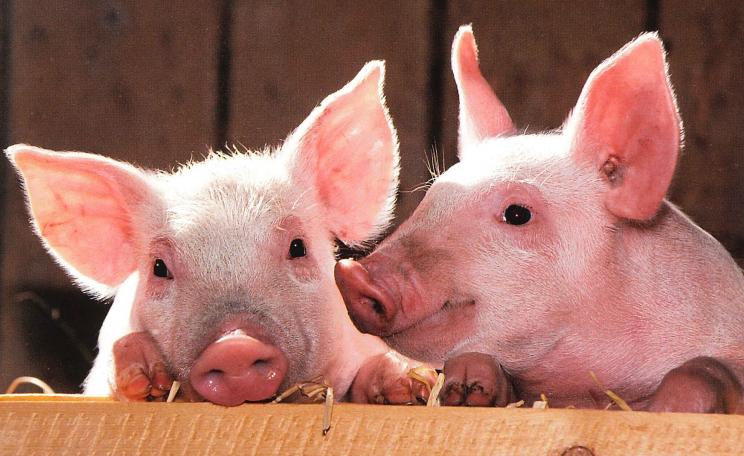For you, the animals and the planet - make this one a truly compassionate Christmas.
Christmas is often a time of excess. An overindulgence of giving, getting and gorging.
Many of us will now being stocking up and filling our cupboards for the festive holiday, but we all know someone who starts stocking up on snacks in September or sherry in the summer.
Each year, these dates hold significance for many reasons. But with excess comes a price. Environmental damage caused by an already inefficient food system in undeniable.
Farmyard
Farmed animals are often described as ‘protein factories in reverse’. This means they consume a far greater number of calories than can be retained in animal-based products such as meat, milk and eggs.
Combine this with the sheer numbers of animals who are farmed to fuel this demand, and the lead-up to Christmas transforms into something very different.
Let’s start in the summer, the season that begins the six-month process resulting in ‘pigs in blankets’.
While some shoppers will already be stocking their kitchen cupboards to capacity, pig farms will also be reaching stocking capacity following the births of piglets.
But this is no farmyard fairy tale, the UK rears 10.6 million pigs annually.
Lifespan
To fuel this demand, mother pigs often have three large litters a year in farrowing crates too small for her to turn around, denying natural mothering instincts. Most of these pigs are reared within intensive inside units, with devastating effects for the animals and environment.
After a few months of life, just a fraction of their natural 15-20 year life span, the young pigs are sent to be slaughtered before arriving on the supermarket shelves in a marketable, yet blanketed disguise.
Whilst September may end the British summer, it also begins the lives of millions of British turkeys. In 2018, approximately 14 million turkeys were slaughtered in the UK, two million of these in December.
Commonly housed with thousands of others, farmed turkeys are given little opportunity to express natural behaviours such as foraging, perching and even mating.
As with all farmed animals, their lives are cut drastically short, with turkeys in the wild known to live up to 10 years, but turkeys in captivity reaching an average lifespan of three months.
For you, the animals and the planet - make this one a truly compassionate Christmas.
Unnatural
Approximately 90 percent of turkeys are reared intensively with no access to the outside, meaning their first - and last - glimpse of sunlight they will ever see is on their way to be slaughtered.
This brings us to December. Millions of us will be out shopping for presents, whilst simultaneously millions of chicks will be hatching in artificial incubators across the UK.
In 2018, over a billion chickens were slaughtered in the UK. Approximately 95 percent of these are housed in intensive indoor system with 20,000 others – or more.
With groups this large, it’s impossible to provide the care that these sentient animals need.
Through unnatural breeding processes, chickens grow around 50 times faster than what they naturally should, often rendering then unable to walk properly as their young bones struggle with the weight.
Planet
For this reason, they have the shortest lives of all commonly farmed animals and can reach full slaughter weight in just 21 short but painful days.
‘Babe’, the 1995 festive family film, depicts a young pig who is almost fated for Christmas dinner, but justifies their existence by demonstrating both personality and intelligence.
This film has stood the test of time because the message is evident – viewers want Babe to live. Veganism is simply putting your natural, affectionate thoughts towards animals into action.
In the UK, more and more individuals are eschewing animal products. Not just at Christmas, but every day of the year. The number of vegans in Great Britain quadrupled between 2014 and 2019 and this is set to rise as younger generations propel the movement forward.
Living a vegan life is easier than ever before - every major British retailer now stocks its own range of vegan foods including luxurious Christmas treats, a far cry from the stereotyped dry nut roast.
But it’s not just about the food. Fashion houses, cosmetics companies and pharmaceutical manufacturers are all taking notice, too.
Whether it’s a treat for a loved one or a treat for yourself, there’s also a vegan friendly present for everyone. For you, the animals and the planet - make this one a truly compassionate Christmas.
This Author
Louisianna Waring is the insight and commercial policy officer at The Vegan Society. She has an educational background in both food policy and animal science and is passionate about animal rights. If you would like to find out more about veganism, vegan nutrition and our new campaign Vegan and Thriving, please check out our website here.






